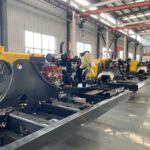介绍
What is an excavator? Excavators are one of the most versatile and essential pieces of heavy equipment in the construction and mining industries. These powerful machines are used for a variety of tasks, including digging, lifting, and moving earth and materials. In this comprehensive guide, we will explore what an excavator is, its various types, key features, and applications. Whether you’re a construction professional or simply curious about heavy machinery, this guide will provide you with all the information you need to understand what an excavator is and how it operates.
什么是挖掘机?

Definition and Overview
An excavator, also known as a digger or mechanical shovel, is a type of heavy construction equipment that consists of a boom, dipper (or stick), bucket, and cab on a rotating platform known as the “house.” The house sits atop an undercarriage with tracks or wheels. Excavators are used for a variety of tasks, including digging trenches, holes, and foundations; material handling; demolition; and much more.
Key Components
- Boom: The long arm that extends from the cab and is used to reach and move materials.
- Dipper (Stick): Attached to the boom, the dipper controls the depth and reach of the bucket.
- Bucket: The attachment used for digging and scooping materials.
- Cab: The operator’s compartment, which houses the controls for the excavator.
- Undercarriage: The base of the excavator, which may have tracks or wheels for mobility.
How Excavators Work
Excavators use a hydraulic system to power their movement and attachments. The hydraulic system includes a pump, valves, and motors that work together to control the flow of hydraulic fluid, which in turn moves the boom, dipper, and bucket. The operator controls these movements from the cab using joysticks and pedals.
what is an excavator: Types of Excavators
履带挖掘机
Crawler excavators, also known as track excavators, are the most common type of excavator. They are equipped with tracks instead of wheels, which provide better stability and traction on uneven or rough terrain. Crawler excavators are ideal for heavy-duty tasks such as mining, construction, and forestry.
Wheeled Excavators
Wheeled excavators are similar to crawler excavators but have wheels instead of tracks. This makes them faster and more maneuverable on paved surfaces. They are often used in urban construction projects where mobility is a key factor.
Mini Excavators
Mini excavators, also known as compact excavators, are smaller versions of standard excavators. They are designed for smaller jobs in tight spaces where larger machines cannot operate. Mini excavators are commonly used in landscaping, small construction projects, and utility work.
Long Reach Excavators
Long reach excavators are designed for tasks that require extended reach, such as dredging and demolition. They have a longer boom and dipper arm, allowing them to reach greater distances.
Dragline Excavators
Dragline excavators are used for large-scale excavation projects such as mining and dredging. They have a long boom with a bucket that is dragged across the ground to collect material.
Suction Excavators
Suction excavators, also known as vacuum excavators, use high-pressure vacuum technology to remove materials. They are commonly used for tasks that require precision, such as underground utility work.
Hydraulic Shovels
Hydraulic shovels, also known as power shovels, are similar to standard excavators but have a larger bucket and more powerful hydraulics. They are used for heavy-duty tasks such as mining and large-scale construction projects.
what is an excavator: Applications of Excavators
建造
What is an excavator? Excavators are widely used in the construction industry for tasks such as digging foundations, trenches, and holes. They are also used for material handling, demolition, and site preparation.
矿业
In the mining industry, excavators are used for digging and removing overburden, extracting minerals, and loading materials onto trucks or conveyor belts.
园林绿化
Excavators are commonly used in landscaping for tasks such as digging ponds, grading land, and removing tree stumps.
Forestry
In the forestry industry, excavators are used for tasks such as clearing land, removing trees, and building logging roads.
拆除
Excavators equipped with specialized attachments are used for demolition tasks, such as breaking concrete, cutting steel, and dismantling structures.
Utility Work
Suction excavators and mini excavators are commonly used for utility work, such as installing underground pipes and cables, repairing water mains, and maintaining sewer systems.
Comparison of Excavator Types
| 类型 | Mobility | Best For | Limitations |
|---|---|---|---|
| 履带挖掘机 | 曲目 | Heavy-duty tasks, rough terrain | Slower on paved surfaces |
| Wheeled Excavators | Wheels | Urban construction, mobility | Less stable on rough terrain |
| Mini Excavators | Tracks/Wheels | Small spaces, light tasks | Limited reach and capacity |
| Long Reach Excavators | 曲目 | Extended reach tasks | Less maneuverable in tight spaces |
| Dragline Excavators | 曲目 | Large-scale excavation | Requires significant space |
| Suction Excavators | Wheels | Precision tasks, utility work | Limited to soft materials |
| Hydraulic Shovels | 曲目 | Heavy-duty mining and construction | High cost and large size |
what is an excavator: Benefits of Using Excavators
提高效率
What is an excavator? Excavators are highly efficient machines that can perform a wide range of tasks quickly and accurately. This increases productivity and reduces the time required to complete projects.
多功能性
With a variety of attachments available, excavators can be used for multiple tasks, including digging, lifting, grading, and demolition. This versatility makes them valuable assets on any job site.
Precision
Modern excavators are equipped with advanced technology, such as GPS and automated controls, which enhance their precision and accuracy. This is particularly important for tasks that require exact measurements and careful handling.
安全
Excavators reduce the need for manual labor, which minimizes the risk of injury on the job site. Additionally, their enclosed cabs protect operators from debris and other hazards.
成本效益
While the initial investment in an excavator can be high, their efficiency and versatility lead to long-term cost savings. They can perform tasks that would otherwise require multiple machines or significant manual labor.
How to Choose the Right Excavator

Assess Your Needs
What is an excavator? Consider the specific tasks you need the excavator to perform. This will help you determine the type and size of the machine that best suits your needs.
Evaluate Job Site Conditions
Take into account the terrain and space constraints of your job site. This will influence whether you need a crawler, wheeled, or mini excavator.
Consider Attachments
Think about the attachments you may need for your excavator. Common attachments include buckets, hammers, grapples, and augers. Ensure the excavator you choose is compatible with these attachments.
Check for Advanced Features
Look for excavators with advanced features such as GPS, automated controls, and telematics. These features can enhance productivity and efficiency on the job site.
Budget and Financing
Determine your budget and explore financing options if needed. While it’s important to consider the cost, also factor in the long-term benefits and potential cost savings of using an excavator.
Conclusion: 什么是挖掘机?
What is an excavator? Excavators are indispensable machines in the construction, mining, and landscaping industries. Their versatility, efficiency, and precision make them essential for a wide range of tasks. By understanding what an excavator is, the different types available, and their various applications, you can make an informed decision when selecting the right excavator for your needs. Whether you’re digging trenches, handling materials, or performing demolition work, having the right excavator can significantly enhance your productivity and success on the job site.
常问问题
What is an excavator used for?
Excavators are used for a variety of tasks, including digging trenches, holes, and foundations; material handling; demolition; and more. They are versatile machines that can perform multiple functions with different attachments.
What are the different types of excavators?
There are several types of excavators, including crawler excavators, wheeled excavators, mini excavators, long reach excavators, dragline excavators, suction excavators, and hydraulic shovels. Each type is designed for specific tasks and job site conditions.
How do I choose the right excavator for my needs?
To choose the right excavator, consider the specific tasks you need to perform, the terrain and space constraints of your job site, the attachments you may need, and your budget. Evaluating these factors will help you select the most suitable excavator for your needs.
What are the key components of an excavator?
The key components of an excavator include the boom, dipper (stick), bucket, cab, and undercarriage. These components work together to perform various tasks, such as digging, lifting, and moving materials.
Are excavators cost-effective?
While the initial investment in an excavator can be high, their efficiency, versatility, and ability to perform multiple tasks lead to long-term cost savings. They reduce the need for manual labor and multiple machines, making them a cost-effective choice for many projects.
What attachments can be used with an excavator?
Common attachments for excavators include buckets, hammers, grapples, augers, and compactors. These attachments enhance the versatility of the machine, allowing it to perform a wide range of tasks on the job site.


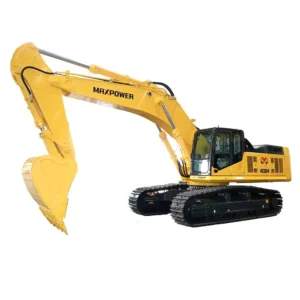
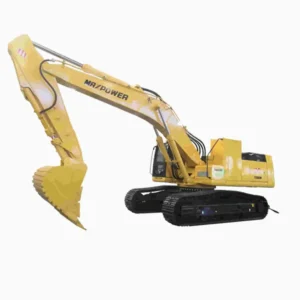
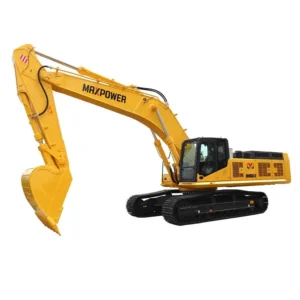
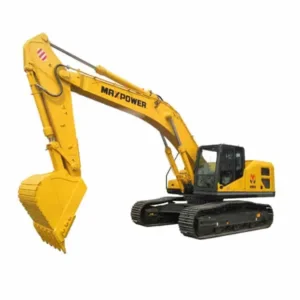
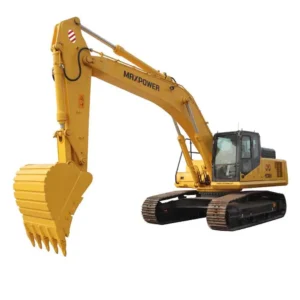
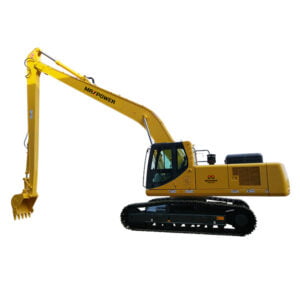
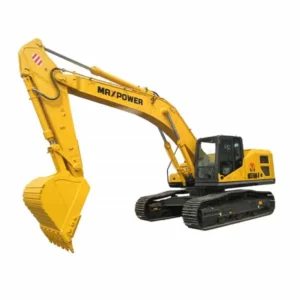
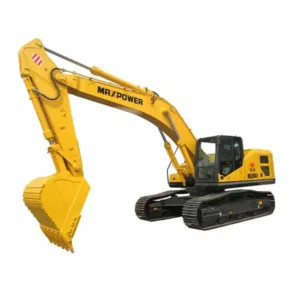
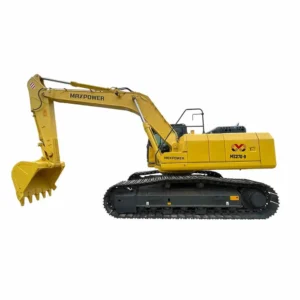
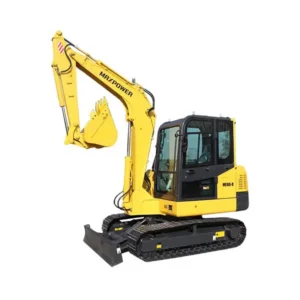
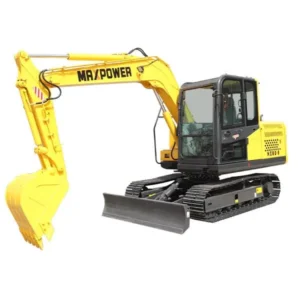
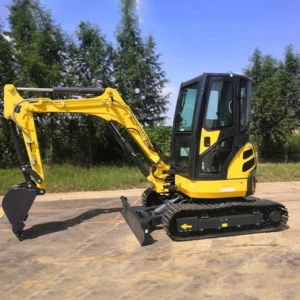
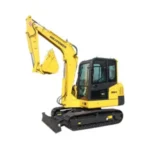

-150x150.webp)
